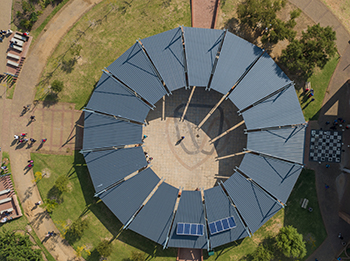Latest News Archive
Please select Category, Year, and then Month to display items
12 October 2020
|
Story Dr Cindé Greyling
|
Photo Supplied
 Exercise and nutrition can work wonders for your mental health – you don’t even have to ‘feel like’ or ‘enjoy’ moving around and eating well for it to work – it does its thing anyway.
Exercise and nutrition can work wonders for your mental health – you don’t even have to ‘feel like’ or ‘enjoy’ moving around and eating well for it to work – it does its thing anyway.
Nowadays, people talk about mental health like it is the common cold – which is good! But do you know what it really means? Being mentally healthy does not only refer to the absence of a mental illness but includes your emotional and social well-being. One would almost want to add physical well-being too, since a healthy body does indeed support a healthy mind. However, since so many people consider themselves ‘mental health experts’, some myths have been sold as truths.
Myth #1 – You are doomed.
Nope. Never. You are never doomed. There is always help. Mental-health therapies range from self-help, talk therapy, medication, to hospitalisation in some cases. Somewhere on this spectrum of treatments, there will be something that works for you. But you must be willing to get the help and do the work. For starters, exercise and nutrition can work wonders – you do not even have to ‘feel like’ or ‘enjoy’ moving around and eating well for it to work – it does its thing anyway.
Myth #2 – It won’t affect you.
It may. Research suggests that one in five people may suffer from a mental illness at some point in their lives. Being well now does not mean that it will stay that way. Biological and environmental factors both impact your mental health. Hopefully not, but at some point, you may experience an event that affects your mental health.
To remain integrated in a community is always beneficial
for anyone suffering from a mental or physical condition.
Myth #3 – Someone struggling with mental health must be left alone.
Hardly! To remain integrated in a community is always beneficial for anyone suffering from a mental or physical condition. You do not need to fix them, but to remain a friend. Continue to invite them, even if they decline. Do not judge, and do not try to understand. Just stay around.
Go and be kind to yourself, and to those around you.
Renewable energy systems an economical investment for the UFS
2017-06-14

The Qwaqwa Campus Arena equipped with freestanding
roof solar panels.
Photo: iFlair Photography
Renewable energy systems are said to be very expensive to implement initially, but in the long run they provide high economic returns.
With their decision to install renewable energy, the University of the Free State Department of Facilities Planning has now also adopted this innovative technology. They have chosen less capital-intensive solar power-generating options to generate electricity in various buildings and parking areas on all three UFS campuses.
“As per the UFS Energy Management Policy, all designs incorporate efficient, renewable energy sources varying from LED lights to solar power,” says Anton Calitz, Electrical Engineer in University Estates’ Department of Facilities Management.
South Campus taking the lead in renewable energy usage
In December 2016, a total of 26 solar-driven LED street-light poles were installed at the recently built Legae Residence’s parking area and the perimeter security area on the South Campus. This low-maintenance system improves security after dark and is independent of the national power supply, which is an important advantage during power outages. With no requirements for major earthworks and cable setting, operational costs are reduced.
The recently built infrastructure also takes pride in being the first to have a greywater system installed. This system will also be installed at three other residences on the Bloemfontein Campus in 2017. Greywater is made up of bath, shower, and bathroom sink water. The water is reused for toilet flushing, as well as for irrigation purposes.
Various UFS electrical operations to depend on solar power
On the Bloemfontein and Qwaqwa Campuses, the computer laboratories as well as the Thakaneng Bridge Student Centre and the projected Afromontane Research Centre will be equipped with freestanding roof solar solutions during 2017. These systems are designed to operate independently of the power grid (Eskom).
The systems only operate during sunlight hours when the PV solar panels are heated by the sun, making them suitable for operations such as ventilation fans, water pumps, and small circulation pumps for solar thermal water-heating systems.